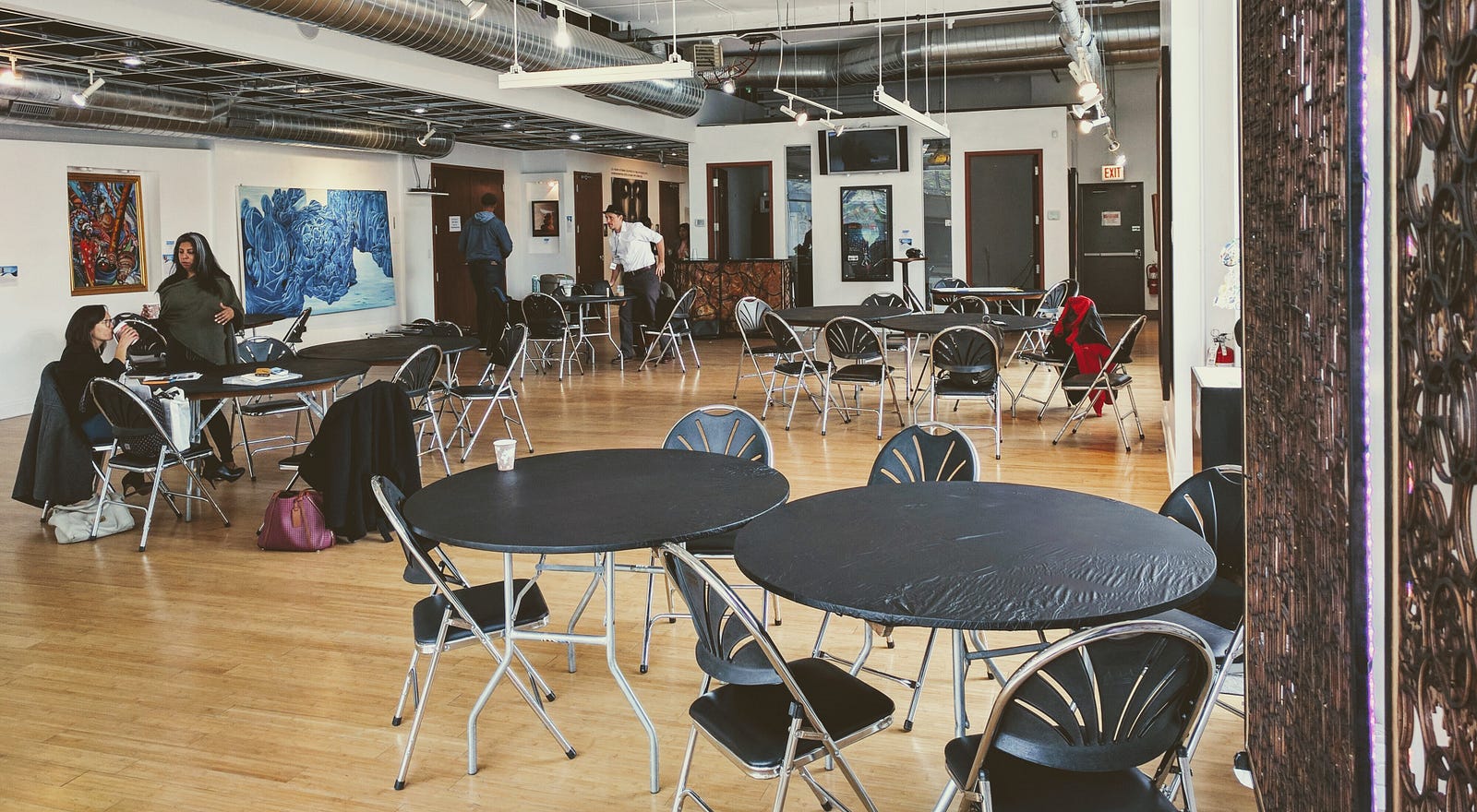Fieldnotes: Ethics In Lab Team Research
The Lab environment, it may be their first exposure to engaging in collaborative, cross-disciplinary research and prototyping, thus we have a responsibility to make part of our container setting about exploring ethical considerations.

Working in social labs and innovation settings
(this article was first published in 2017 on my medium account)
TL;DR
- Integrating ethics explicitly into Lab practice has the potential to improve outcomes from the Lab Teams.
- ‘Lab Sprints’ are essentially design research, and we must consider how best to build the capacity of ‘first time designers’ in this discipline.
- We can draw on existing work in Participatory Design and Action Research to create some ‘good practice’ for Lab Teams.
We could focus on 3 areas to integrate ethics into Lab Teams’ practice:
- Education & Exploration
- Embedding into practice
- Calling out bad practice
Background & Assumptions
This is the beginning of my attempt to articulate the importance, and need for explicitly building in ethics into Lab Team practice. It draws together my personal experience, previous research projects, and my involvement in the codesign communities of practice in Australia & New Zealand, focusing on participatory approaches to policy, service and systemic design (hosted by Design for Social Innovation in NZ, and Peer Academy in Australia).

Is there really a need for Ethics?
Ethics are the norms we establish that distinguish between acceptable and unacceptable behavior when it comes to research. We may also define ethics as a method, procedure, or perspective for deciding how to act and for analyzing complex problems and issues[1].
When we’re inviting people into a Lab environment, it may be their first exposure to engaging in collaborative, cross-disciplinary research and prototyping, thus we have a responsibility to make part of our container setting about exploring ethical considerations. This does not mean ‘handing down’ a code of ethics, but supporting Lab Teams to co-create their own — more about that later.
Ethics processes have sometimes been seen as an overhead in academia & industry, based around risk aversion/management, I believe there is a significant opportunity to integrate ethics considerations into Social Labs to improve outcomes of Lab Teams.
My hypothesis is that social labs are working on complex problems with participatory approaches, and therefore will almost always be interfacing with society and ecology throughout this process to design new interventions. If this is the case, then there needs to be an awareness of the responsibility and power which comes with this privilege. A good ethics process can help people better understand the intended and unintended consequences of their design practice, and thus improve the quality of their outcomes and communication of them.
Building trust and engagement with communities who are involved and affected by the Lab is vital to it’s success. Therefore holding ourselves to better ethical standards will support the overall resilience of the lab as a core piece of social infrastructure.
How ethical considerations are introduced and integrated into the Lab, will fundamentally affect how this opportunity unfolds.
Are Lab Team ‘Sprints’ the same as Design Research?
Whether we’re talking about enabling Lab Teams to create prototypes through Agile process, or go out and research the needs of real people, essentially we’re asking our teams to identify and design new interventions. For this reason, Lab Team Sprints are more akin to design research, than scientific research, due to the abductive nature of the research and sensemaking they’re being asked to engage in.
‘Design research’ was traditionally carried out at the beginning of a design process, and aimed to gather all the information needed to create solutions. However thanks to trends in technology, practice innovation and application of design research to new domains, it is now seen as an activity and a mindset which takes place throughout the design process. The field of design research has grown exponentially since the 1980s and intersects with the social sciences, psychology and various other disciplines which gives it a good basis of ground already covered for us to draw on.
Conferences are increasingly providing space for this niche to be developed in the open, such as at UX Australia in 2017:
Lab Teams as (Design) Researchers
It’s important for us to recognise that many of the members of the Lab Teams have little or no professional design and/or research experience, however this does not mean they cannot be good designers and/or researchers. Yet it does suggest that there may be certain gaps in their understanding of how to do good design research, which designers & researchers would have been exposed to through academic or on the job training.
Whilst the Lab process often wont allow adequate time to give a comprehensive grounding in a discipline which some people spend their lives working on, it is a highly experiential learning environment in which rapid skill adoption is common. To this end, recognising Lab Teams as designers is an important step in increasing the quality of outcomes of the Lab, through better design of the content and lab experience.
Practice to draw from
This section aims to outline a small range of the most promising areas to draw from in order to best understand how to introduce ethics into the Lab environment.

(Participatory) Design Research
As mentioned above, I feel like rooting this work in Design has the potential to rapidly enable us to stand on the shoulders of giants.
Seminal work in this space includes Liz Sanders [2], Penny Hagen’s efforts in NZ through DSI symposiums & Lifehack [3], Michela Clarkson [4], Designing With People [5], Simonsen & Robertsen [6], Christiansen [7], Manzini [8] and more.
Key insights:
- Communication with participants about the research forms a large component of the ethics of design research; transparency about what is being recorded, of how the research will be used, and following up when solutions are being developed.
- No single ‘code of ethics’ covers all designers, instead there is the implicit understanding that each designer should establish their own, based on the work they’re doing.
- Questions about ethics in design research and the application of design for social challenges are really questions about the quality, safety and rigour of our practice (DSI Symposium).
- In participatory design work, ethics are constantly negotiated with the participants, as they have the ability to walk away at any time (‘free, informed and express consent’).
- Up front discussion about how research is conducted, and the pitfalls inherent in design work (such as cognitive bias, fitting evidence to existing solutions in mind, and using the power of being a designer in a range of ways), can help prevent bad practice.
- Cultural context can hugely affect the expectations and approach needed for good practice, so this should be closely considered when preparing for research activities (DSI Symposium).
- Designing With People suggests the 5 C’s as a framework for thinking about ethics.
Social Sciences
Important work in this space includes Bergold [9], Zeni [10], Bradbury [11], Dunn [12], Chevalier & Buckles [13] and more.
Key insights:
At the core of the Participatory Action Research method are principles of democracy and humanity within research, involving:
- respect for persons participating in the research;
- a duty of care to vulnerable participants;
- an effort to limit risk and maximise participants’ collective and individual benefits;
- opportunities for self-representation;
- ongoing responsiveness to the needs of the research partners;
- frequent review by those who are involved in the research;
- continuous reflection about potential ethical dilemmas by the academic researcher;
- reciprocity
Action researchers start with ill-defined problems which become clearer in each research cycle. It is likely that an ethics committee may have to consider projects that described much about the research context and potential co-researchers but not much about specific data collection methods or theoretical frameworks. The research situation may be described as ‘fuzzy’, ill-defined and complex. Exploratory may also be a term used (Dunn).
Action researchers maintain that ‘the community’ should be just as able to decide what is researched as the scientific community. They maintain that ‘real world problems’ which are more complex and always involve people. Such research questions usually reveal indiscrete variables which can only be approached by general questions (i.e. unstructured) which reveal local knowledge leading to understanding and local action (Dunn).
Implications & Direction
This is a recommendation for how to proceed, based on the synthesis of these insights.

Education & Exploration
Lab secretariats and convenors need to show leadership in this area by indicating the value of building ethical practice into the Lab Teams’ core skill sets.
This potentially looks like a capacity building play — such as a workshop within a Studio, shared resources, facilitated session on scenarios, group clinics, or otherwise.
The aim is to allow individuals and teams to explore how they will adopt this practice in a safe space, before being let loose on ‘the public’.
Embedding into practice
Capacity building doesn’t happen overnight, and it doesn’t always happen in a single group workshop, it needs to be cultivated and embodied by people, and made sense of in the context of their experiences.
To this end, we need to provide the infrastructure and support for people to do this work. This may look like sense checking research plans with Lab team coaches, group reflection sessions, and running top up clinics for people who want to go deeper into certain methods or scenarios.
Calling out bad practice
Most professional associations provide some kind of mechanism to report malpractice or breaches of codes of ethics.
I suggest each Lab, as a minimum, set up an email address and or phone number which people can report concerns. These should be added to the Lab’s website, and perhaps create some business cards which Lab Team members must hand out when conducting research, and/or add the details to any release forms which may be used by the teams.
Internally Labs would need a small team who reviews any incoming complaints, and takes appropriate action — ideally they should be relatively neutral to the Lab itself, and whilst versed in the kinds of research is conducted through Labs, they should also be skilled in managing the rigour of ethics reviews.
It would make sense to have a simple one page policy about the procedure for complaint handling viewable on the Lab’s website.
Summary
The global Lab community is at a pivotal point, during which it is fragile and susceptible to being discredited should something happen, caused by improperly supported Lab Team members.
Using an ethics process to support greater critical reflection before jumping into sensitive situations, is an easy win for Labs, which can only improve the rigour and quality of interventions developed in the Lab environment.
Lab coordinators proactively connecting with local Design faculties might be a simple first step to better understanding local conditions and expectations, and highlighting other areas to think about which I haven’t covered in this Fieldnote.
If you’d like to connect to talk more, please contact me on twitter, Linkedin, or reply to this post.
Acknowledgements
I want to give a big mihi to my Lifehack whānau for the inspiration for this article. I also want to acknowledge Social-Labs.org for the time and space to observe and listen for the gaps in our collective practice.

References
[1] Resnik, D. B. (2014). What is Ethics in Research & Why is it Important? National Institute of Environmental Health Services, 8–11. Retrieved from http://www.niehs.nih.gov/research/resources/bioethics/whatis/
[2] Sanders, E. B. (n.d.). Perspectives on Participation in Design. Retrieved from http://www.maketools.com/articles-papers/Sanders2013Perspectives.pdf
[3] Hagen, P. (2016). Ethics in (social design and innovation) practice. Retrieved from http://www.smallfire.co.nz/2016/07/31/ethics-in-social-design-and-innovation-practice/
[4] Clarkson, M. (2015). Walk alongside: Co-designing social initiatives with people experiencing vulnerabilities.
[5] Helen Hamlyn Centre For Design. Ethics: Recruiting and researching people with respect. DesigningWithPeople.rca.ac.uk
[6] Simonsen, J & Robertson, T (2012). Routledge International Handbook of Participatory Design.
[7] Christiansen, E. (2014). From “ethics of the eye” to “ethics of the hand” by collaborative prototyping. Journal of Information, Communication & Ethics in Society, 12(1), 3–9. http://doi.org/10.1108/JICES-11-2013-0048
[8] Manzini, E. (2006). Design, ethics and sustainability. Yrjö Sotamaa Cumulus President, 9.
[9] Bergold, J., & Thomas, S. (2012). Participatory Research Methods: A Methodological Approach in Motion. Forum Qualitative Sozialforschung / Forum: Qualitative Social Research, 13(1). Retrieved from http://www.qualitative-research.net/index.php/fqs/article/view/1801/3334
[10] Zeni, J (1998) A guide to ethical issues and action research[1] , Educational Action Research, 6:1, 9–19, DOI: 10.1080/09650799800200053 Retrieved from http://dx.doi.org/10.1080/09650799800200053
[11] Bradbury, H (2015). The SAGE Handbook of Action Research.
[12] Dunn, A. M. (1998). Action Research & the Implications for Ethics in Human Research. Retrieved October 13, 2016, from https://www.csu.edu.au/research/ethics_safety/human/ehrc_actnres
[13] Chevalier, J.M. and Buckles, D.J. (2013) Participatory Action Research: Theory and Methods for Engaged Inquiry, Routledge UK. ISBN 978–0415540315, ch 8.





Comments ()